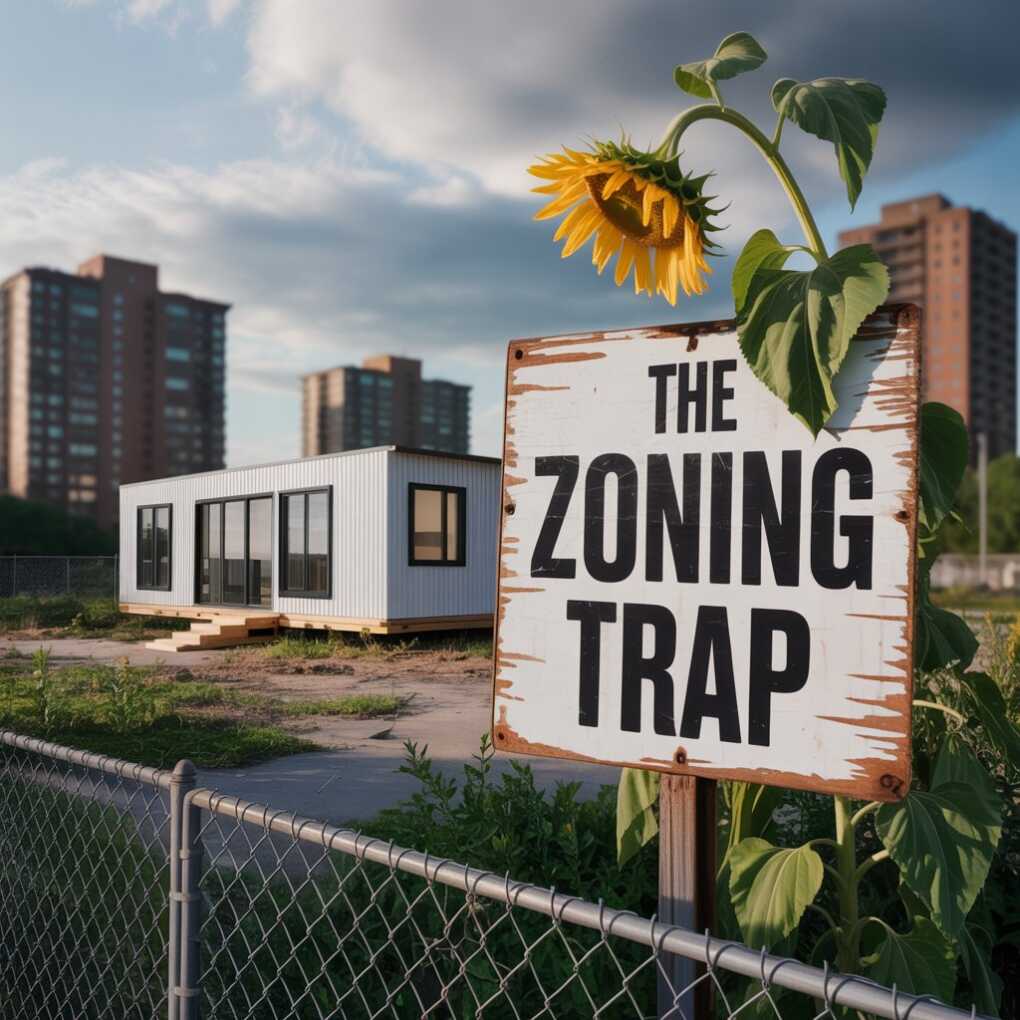Building a modular home can be an exciting journey toward achieving your dream of homeownership. However, many prospective homeowners underestimate the impact of local zoning laws on their plans. Zoning regulations dictate how land can be used and can significantly affect your ability to build a modular home. Understanding these laws is crucial to avoid costly mistakes and ensure a smooth construction process.
In this blog post, we’ll explore the intricacies of zoning laws, the potential pitfalls, and how to navigate the system effectively. For those considering modular homes, be sure to check homes to find options that align with your vision.

Understanding Zoning Laws
Zoning laws are local regulations that govern how land can be used. They can dictate everything from the types of structures that can be built to the density of development in a particular area. Zoning classifications can include residential, commercial, industrial, and agricultural uses. Each classification has specific restrictions and requirements.
For modular home builders, understanding these classifications is essential. For instance, a property zoned for agricultural use may not permit residential structures, including modular homes. Additionally, even within residential zones, there may be further classifications that dictate the types of homes allowed, their size, and their design.
Types of Zoning Regulations
There are several common types of zoning regulations that can impact your modular home plans:
1. Residential Zoning
Residential zoning is the most relevant category for modular home builders. This type of zoning is typically divided into subcategories that can restrict the types of homes allowed. For example, some residential zones may only permit single-family homes, while others may allow duplexes or townhomes. It’s crucial to verify that modular homes are permitted in your desired residential zone.
2. Special Use Permits
In some cases, even if your property is zoned for residential use, you may need a special use permit to build a modular home. This permit allows homeowners to use their property in a way that is not typically permitted under current zoning regulations. Obtaining a special use permit can be a lengthy process, requiring public hearings and additional documentation.
3. Setback Requirements
Setback requirements dictate how far a structure must be from property lines, streets, and other structures. These regulations can significantly impact your modular home’s design and placement on the property. Failing to adhere to setback requirements can result in fines or orders to relocate your home.
4. Height Restrictions
Many localities impose height restrictions on residential structures. These restrictions can limit how tall your modular home can be, affecting design choices and livable space. It’s essential to consider these restrictions during the planning stages.
5. Density Regulations
Density regulations determine how many homes can be built on a specific parcel of land. If you plan to build in a highly populated area, density regulations may limit your options. Understanding these regulations is crucial for planning your project.
The Impact of Zoning on Modular Home Financing
Zoning laws can also impact your ability to secure financing for your modular home. Lenders often require that the property comply with local zoning regulations. If your home doesn’t meet these requirements, you might face challenges in obtaining a mortgage. It’s vital to ensure that your planned home aligns with local zoning laws before seeking financing.
Common Zoning Pitfalls to Avoid
1. Ignoring Local Regulations
One of the most significant mistakes prospective modular homeowners make is ignoring local zoning regulations. Always conduct thorough research on zoning laws in your area before making any plans.
2. Underestimating the Approval Process
The process of obtaining necessary permits and approvals can be lengthy. Allow ample time for this process to avoid delays in your construction timeline.
3. Not Considering Future Zoning Changes
Zoning laws can change over time. What may be permissible today might not be in the future. Consider potential future changes when planning your modular home.
4. Failing to Consult Local Experts
Working with local real estate agents, builders, and zoning experts can provide invaluable insights. They can help you navigate the complexities of zoning laws and avoid common pitfalls.
FAQs about Zoning and Modular Homes
1. What are the common zoning classifications for residential areas?
Common classifications include single-family residential, multi-family residential, and mixed-use. Each has specific regulations that dictate the types of structures allowed.
2. Can I build a modular home in a commercial zone?
Typically, commercial zones do not permit residential structures. However, some areas may allow mixed-use developments. Always check local regulations.
3. What is a special use permit, and do I need one?
A special use permit allows you to build something not typically allowed in your zoning classification. Whether you need one depends on local laws and your specific plans.
4. How can I find out about zoning regulations in my area?
Visit your local government’s website or zoning office. They can provide up-to-date information on zoning laws and regulations.
5. What should I do if my modular home plans do not comply with zoning laws?
Consult with a zoning attorney or local planning department. They can help you understand your options, including potential variances or modifications to your plans.
Conclusion
Navigating the complexities of zoning laws is essential for anyone considering a modular home. Understanding local regulations can make the difference between a successful project and a frustrating experience. By researching zoning classifications, consulting local experts, and being mindful of potential pitfalls, you can set yourself up for success. Always remember to check homes that comply with local regulations and meet your needs. With careful planning and informed decision-making, your dream of owning a modular home can become a reality without the unexpected hurdles of zoning issues.
